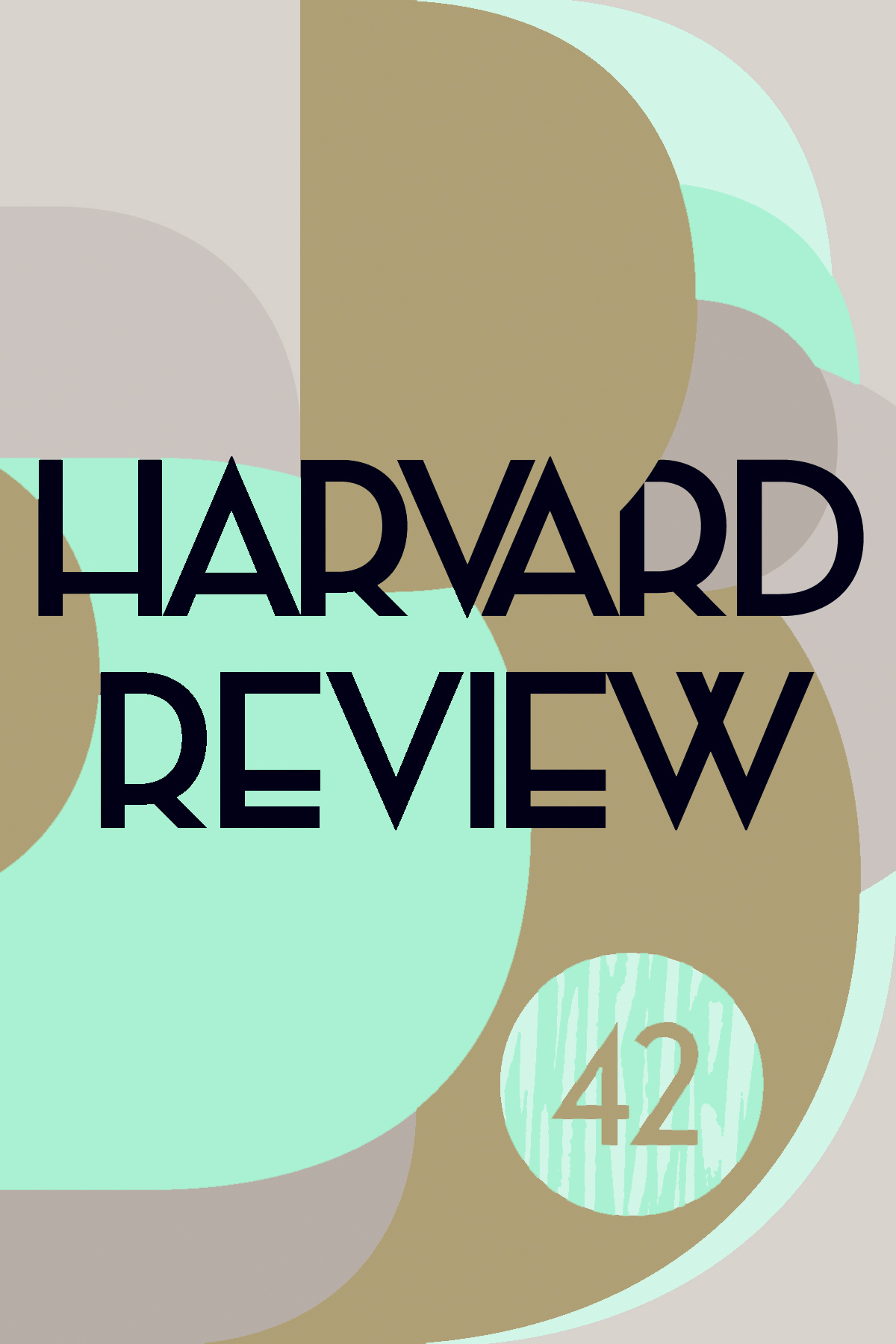HR 42 Editorial
by Christina Thompson
It has given us great pleasure in the past to publish writers who were making their literary debut late in life, men and women with a lifetime’s experience who were only just beginning to publish, or even, in some cases, to write. I remember an essay by Jacqueline Gill (HR 34) about growing up in the Texas Panhandle, which took us back to a place and time that was fascinating, to me, at least, because it was so utterly unfamiliar.
But it’s also satisfying to publish writers at the very beginning not just of their literary careers but of their adulthood. In this issue, we have two such writers, both newly minted college graduates, class of 2012. Mark Chiusano is a fiction writer, whose story, “To Live in the Present Moment Is a Miracle,” is a lyrical study of friendship and ambiguity. His counterpart, Sophia Veltfort, is the author of “Missing,” an elegant essay about a young woman’s search for the sperm donor who is, technically, her father. Both are remarkably young and remarkably talented and it’s fun to catch an early glimpse of the writers they will undoubtedly be.
Veltfort’s essay is an interesting take on an age-old story, and looking back over this issue, I am struck by how many parents there are—missing, lost, longed for, and re-invented. In a lively novel extract by Pauls Toutonghi, a young man goes to Egypt in search of his absent father; in John Culbert’s punningly titled short story “Rider,” a boy tries to please the father with whom he has little in common; in poems by Mark Jarman, Charles Simic, and Honor Moore, mothers and especially fathers keep surfacing like finbacks from the psychological deep.
Most of these pieces take the child’s point of view, but sometimes the children are not, chronologically speaking, children any longer. In “The Mezuzah,” for example, Brian Schwartz takes advantage of the distance adulthood brings to reconsider his mother’s conversion from Catholicism to Judaism—a subject that held little interest for him as a child. And in the story that hit closest to home for me personally, Karen Bender captures the pain that adult children feel when they first realize that the ground has shifted underneath them: nothing spells the end of childhood better than parents who are no longer parental.
Tucked in amongst these family dramas are a handful of pieces focused not on the familiar but on the foreign or the strange. In “Remapping the Tourist Road,” Barbara Sjoholm tells the story of an adventurous Danish woman at the turn of the twentieth century who traveled with reindeer herders in the land of the midnight sun. In a completely different—but almost as exotic—vein, Jason Mastaler recounts his harrowing experience with “uncompensated vestibulopathy,” a medical condition you never ever want to have. And in Marjorie Celona’s wonderful “The Everpresent Hell of Other People”—a kind of contemporary No Exit set in a hotel room—the context and organizing principle of the story is a giant geomagnetic storm.
In between we have all kinds of poetry: lovely new translations of the work of Spain’s Nobel Laureate Vicente Aleixandre, and poems by Pulitzer Prize winner and former United States Poet Laureate Charles Simic, as well as wonderful art by Richard Tuttle and the Catalan painter and sculptor Antoni Tàpies.
Finally, a note about purchasing the journal. In these days of vanishing bookstores, it is getting harder and harder for readers to locate copies of Harvard Review. We are therefore delighted to announce that it is now possible to order directly from our website at www.harvardreview.org. So, visit us online to find book reviews, interviews, stories from the archives, and more, and while you’re there don’t forget to subscribe. Happy reading from all of us at Harvard Review.
Published on October 17, 2024
First published in Harvard Review 42

